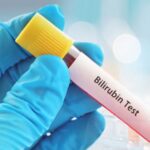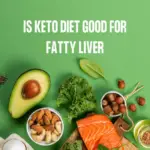Contents
- 1 What Is Energy Drinks?
- 2 Common Ingredients in Energy Drinks
- 3 What Is Fatty Liver?
- 4 Can People With Fatty Liver Drink Energy Drinks?
- 5 Side Effects of Energy Drinks: Fatty Liver
- 6 How Energy Drinks Affect the Liver?
- 7 Can Energy Drinks Cause Liver Damage in the Long Term?
- 8 Should People with Liver Issues Completely Avoid Energy Drinks?
- 9 Can Occasional Consumption of Energy Drinks Affect Liver Health?
- 10 How to Reduce Your Dependence on Energy Drinks?
- 11 How Can I Detox My Liver if I’ve Consumed Too Many Energy Drinks?
- 12 Natural Alternatives to Boost Energy Without Harming the Liver
- 13 Are There Any Energy Drinks That Are Safe for Liver Health?
- 14 The Role of Hydration in Liver Health
What Is Energy Drinks?
Energy drinks are popular beverages designed to provide a quick boost of energy and enhance mental alertness. Typically containing a mix of caffeine, sugar, and various other ingredients like vitamins and herbal extracts, these drinks are marketed to individuals looking to stay awake, improve focus, or enhance physical performance. However, while they offer a temporary energy surge, excessive consumption can lead to health risks, making it important to use them responsibly.
Common Ingredients in Energy Drinks
| Ingredient | Description |
|---|---|
| Caffeine | A stimulant that increases alertness and reduces fatigue. |
| Sugar | Provides quick energy; often present in high amounts. |
| Taurine | An amino acid believed to have various physiological benefits. |
| Vitamins | Commonly B vitamins, which play a role in energy metabolism. |
| Herbal Extracts | Includes ginseng, guarana, and ginkgo biloba for their energy-boosting effects. |
| Amino Acids | Such as L-carnitine or BCAAs, linked to muscle recovery and performance. |
What Is Fatty Liver?
Fatty liver, also known as hepatic steatosis, is a condition where excess fat builds up in the liver. Normally, the liver contains some fat, but when fat makes up more than 5-10% of the liver’s weight, it is considered fatty liver. This condition can be caused by factors such as obesity, excessive alcohol consumption, or poor diet. If left untreated, fatty liver can lead to more serious liver issues like inflammation or liver damage.
Can People With Fatty Liver Drink Energy Drinks?
No, energy drinks are not suitable for patients with fatty liver disease. The high sugar content, caffeine, and artificial additives in these drinks can exacerbate the condition by increasing fat accumulation in the liver, placing additional stress on liver function, and potentially leading to further complications. For individuals with fatty liver, it is crucial to avoid energy drinks and instead focus on a healthy diet and lifestyle changes that support liver health.
Side Effects of Energy Drinks: Fatty Liver
| Side Effect | Description |
|---|---|
| Increased Triglycerides | High sugar content in energy drinks can raise triglyceride levels in the liver, leading to fat accumulation. |
| Liver Stress | Excessive caffeine and stimulants may strain liver function, exacerbating the risk of fatty liver disease. |
| Weight Gain | Regular consumption of high-calorie energy drinks can contribute to obesity, a major risk factor for fatty liver. |
| Insulin Resistance | High sugar intake from energy drinks can lead to insulin resistance, further increasing the risk of fatty liver. |
| Toxin Buildup | Additives and preservatives in energy drinks can contribute to toxin buildup in the liver, potentially worsening liver health. |
How Energy Drinks Affect the Liver?
Energy drinks can harm the liver, especially if you drink them often. They have a lot of sugar, which can make fat build up in the liver, leading to fatty liver disease. The caffeine and other ingredients in energy drinks can also stress the liver, making it work harder. Over time, this can lead to liver problems, especially if your liver is already unhealthy.
Can Energy Drinks Cause Liver Damage in the Long Term?
Yes, regular consumption of energy drinks over a long period can potentially lead to liver damage. The high levels of sugar, caffeine, and other stimulants in these drinks can contribute to fatty liver disease and other liver issues. Over time, this can increase the risk of liver inflammation, scarring, and even more severe liver conditions. It’s important to consume energy drinks in moderation, especially if you already have liver health concerns.
Should People with Liver Issues Completely Avoid Energy Drinks?
Yes, people with liver issues should generally avoid energy drinks. The high sugar content, caffeine, and other stimulants in these drinks can put additional stress on the liver, potentially worsening existing liver conditions like fatty liver disease. For those with compromised liver health, it’s safer to steer clear of energy drinks to prevent further damage and protect overall liver function.
Can Occasional Consumption of Energy Drinks Affect Liver Health?
Occasionally drinking energy drinks is generally not harmful to liver health for most people, especially if you are healthy. However, if you already have liver problems, even occasional energy drinks could stress your liver and make things worse. It’s important to be careful and monitor how your liver reacts.
How to Reduce Your Dependence on Energy Drinks?
If you find yourself relying too much on energy drinks, here are some steps to help reduce your dependence:
- Gradually Cut Back: Start by reducing the number of energy drinks you consume each day. Gradual reduction can help minimize withdrawal symptoms like fatigue or headaches.
- Replace with Healthier Alternatives: Swap energy drinks with healthier options like green tea, herbal teas, or natural juices that provide energy without the harmful effects.
- Focus on Sleep: Prioritize getting enough sleep each night to naturally boost your energy levels, reducing the need for artificial stimulants.
- Improve Your Diet: Incorporate more whole foods like fruits, vegetables, and lean proteins into your diet to maintain steady energy throughout the day.
- Exercise Regularly: Regular physical activity can naturally increase your energy and reduce the need for energy drinks.
- Stay Hydrated: Drinking enough water can help you feel more energized and alert without needing a caffeine boost.
- Manage Stress: Practice stress-reducing activities like meditation, yoga, or deep breathing to avoid turning to energy drinks for a quick fix.
- Set a Limit: Establish a daily limit for energy drink consumption and stick to it, gradually reducing the limit over time.
By making these changes, you can reduce your reliance on energy drinks and improve your overall health.
How Can I Detox My Liver if I’ve Consumed Too Many Energy Drinks?
- Monitor Your Liver Health: Consider getting a liver function test if you’ve been consuming energy drinks regularly. This will give you a clear picture of your liver’s condition and help you take targeted actions.
- Adopt a Temporary Cleanse: For a week or two, focus on a diet rich in leafy greens, cruciferous vegetables like broccoli, and foods high in antioxidants. Avoid anything processed or fried, and drink green tea or dandelion tea, which are known for their liver-supportive properties.
- Incorporate Liver-Supportive Herbs: Beyond just milk thistle, try herbs like artichoke leaf or chicory root, which can help stimulate bile flow and support liver detoxification.
- Mind Your Gut Health: A healthy gut can relieve some of the liver’s workload. Consider adding fermented foods like yogurt, kefir, or sauerkraut to your diet to support gut health.
- Avoid Fasting or Extreme Diets: While it might be tempting to “cleanse” through fasting, this can actually put more stress on your liver. Instead, focus on a balanced, nutrient-rich diet that supports gradual detoxification.
- Engage in Gentle Exercise: Instead of high-intensity workouts, which might temporarily increase liver stress, engage in gentle activities like walking, yoga, or swimming to boost circulation and aid detoxification without overloading your liver.
- Stay Consistent: Small, consistent changes over time will be more beneficial than any quick fix. Ensure that you’re consistently eating a liver-friendly diet and staying hydrated over the long term.
If you’ve been heavily reliant on energy drinks, these steps will give your liver the best chance to recover and maintain its health.
Natural Alternatives to Boost Energy Without Harming the Liver
If you’re looking to boost your energy without the risks associated with energy drinks, there are plenty of natural alternatives that can help:
| Natural Alternative | Description |
|---|---|
| Stay Hydrated | Drinking water throughout the day keeps you energized and prevents fatigue. |
| Eat a Balanced Diet | Whole grains, fruits, vegetables, and lean proteins provide sustained energy. |
| Exercise Regularly | Physical activity boosts energy levels naturally and improves well-being. |
| Get Enough Sleep | Quality sleep (7-9 hours) is crucial for maintaining energy throughout the day. |
| Manage Stress | Techniques like meditation or yoga reduce stress and increase energy levels. |
| Consider Natural Supplements | B vitamins, magnesium, and ginseng can boost energy without liver harm. |
| Take Short Breaks | Regular breaks during work or study sessions help maintain focus and energy. |
This table outlines natural alternatives to energy drinks that can help boost your energy without harming your liver.
Are There Any Energy Drinks That Are Safe for Liver Health?
In general, most energy drinks are not recommended for liver health due to their high sugar content, caffeine, and artificial additives. However, if you’re looking for a safer option, consider the following:
| Energy Drink Option | Description |
|---|---|
| Low-Sugar or Sugar-Free | Choose energy drinks with little to no added sugar to reduce liver stress. |
| Natural Ingredients | Look for drinks with natural sources like green tea or yerba mate instead of synthetic additives. |
| Moderation | Even healthier options should be consumed in moderation to avoid liver strain. |
| DIY Energy Drinks | Make your own energy drinks at home using natural ingredients like lemon juice, honey, and green tea for a safer boost. |
This table outlines different energy drink options and approaches that might be safer for liver health, emphasizing natural ingredients and moderation.
The Role of Hydration in Liver Health
Drinking enough water is important for keeping your liver healthy. Water helps the liver filter out toxins from your blood and supports the digestion of fats, preventing fat buildup in the liver. Staying hydrated makes it easier for your liver to do its job and keeps it functioning well.


